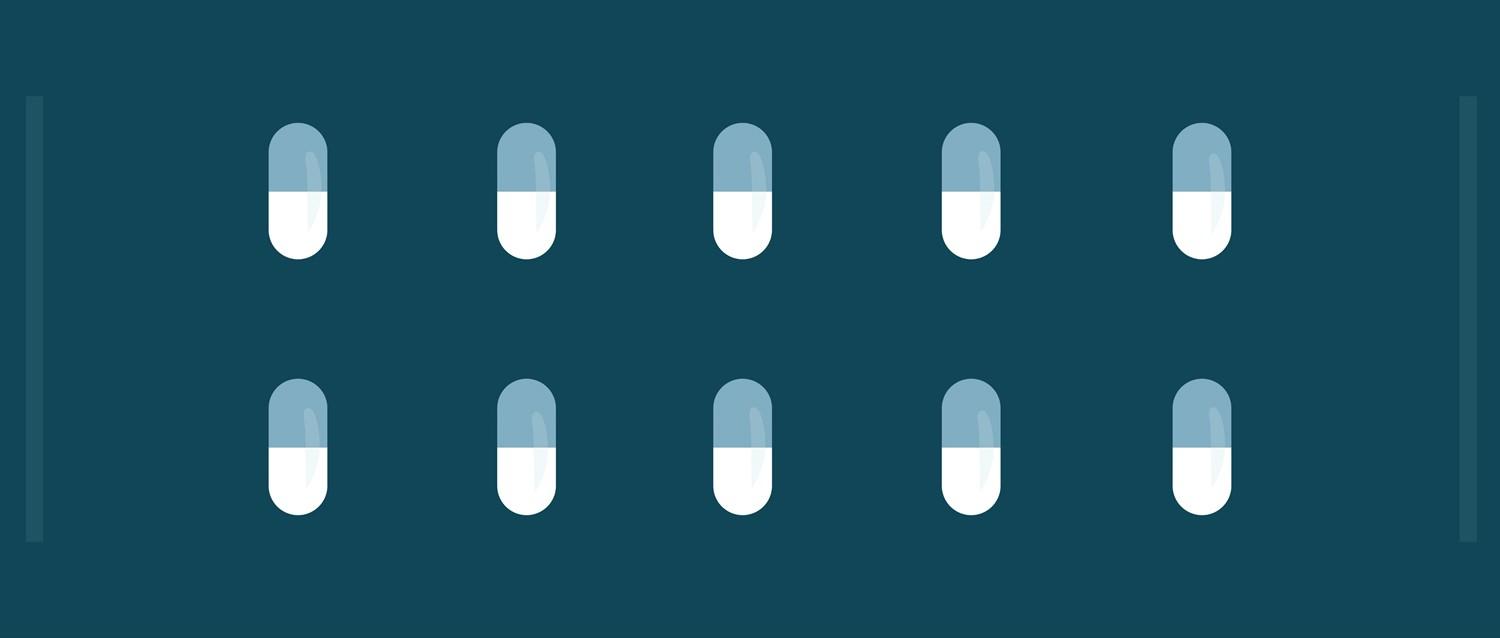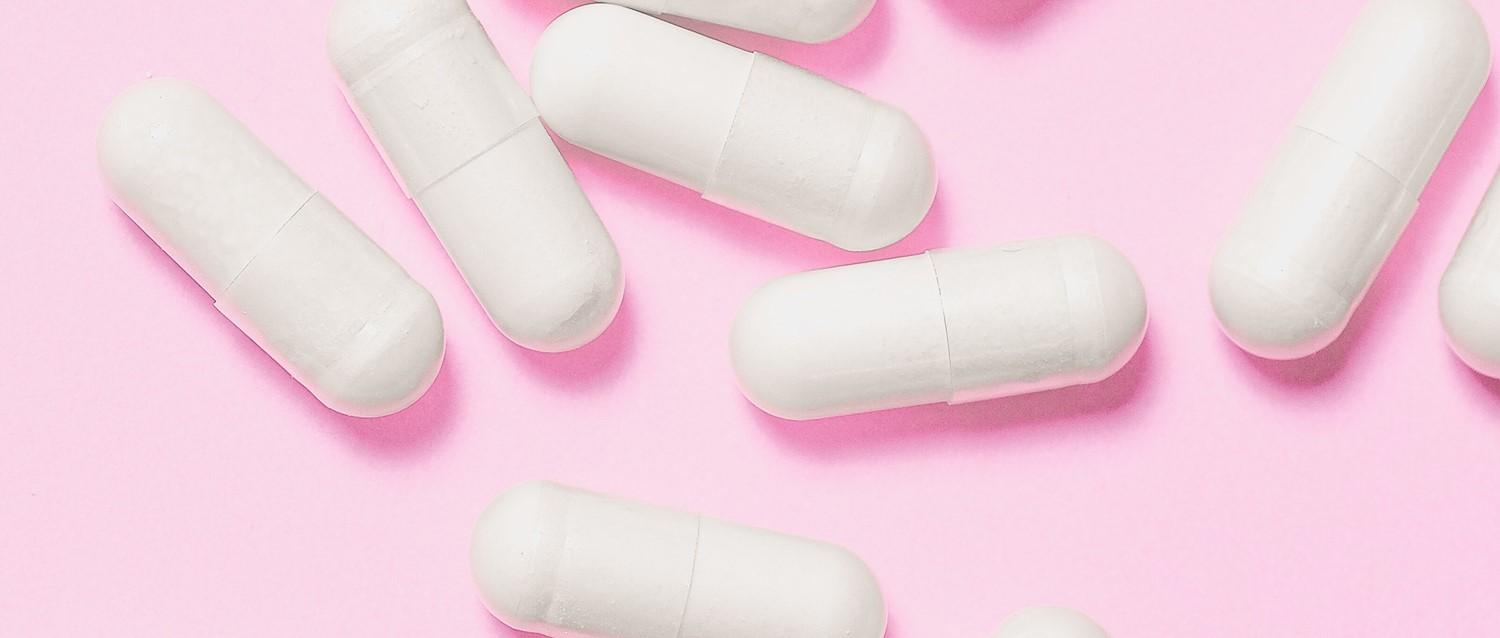
Why is there still stigma around antidepressants?
Peer reviewed by Dr Sarah Jarvis MBE, FRCGPLast updated by Lydia SmithLast updated 31 Aug 2018
Meets Patient’s editorial guidelines
- DownloadDownload
- Share
- Language
- Discussion
Thanks to more of us talking openly about mental illness and the impact it has on so many lives, an increasing number of people are reaching out for help and treatment. Yet despite this, there is still stigma surrounding the use of medication to treat mental health problems.
In this article:
Last year, Claire*, 26, was prescribed fluoxetine - a type of antidepressant known as an SSRI - for OCD and anxiety.
"I went from having a mind that was having ten thoughts at once to being able to organise it all a bit more. I feel like joy is a little easier to find now, my compulsions are easier to control and my panic attacks are much less violent than they were," she says.
Although the medication helped her, Claire says her mum was still unsure.
"She felt like it should be something I can manage on my own, that with positive thinking and exercise that I could cope with it," she explains. "But I've been open with her about how I feel and she's generally more supportive now."
Another friend also told her she would benefit more from 'being outside' than taking medication.
"This is the stigma," Claire adds. "It's embarrassing to insist that you need medication to feel normal. It's humiliating to have to fight for the right to take something that you don't want to have to take."
'Quick fix'
A common myth is that medication is a 'quick fix' for mental health issues. In reality, finding the right medication is not always an easy process and it can take time before the effects are felt. In many cases, your GP may advise talking therapies or counselling alongside medication too.
"I think the biggest myth around medication for me is that people often see it as a failure or a weakness," says Becky Barnes, 38, who has bipolar disorder.
"Friends and family will ask 'how long do you have to take those for then?', as if suddenly after a couple of months the chemical imbalance in your brain is going to miraculously get better."
"For someone like me with bipolar, my antidepressants are my lifeline. They enable me to get to up in a morning, get dressed and function."
'Laziness'
Back to contentsAnother myth is that taking medication means you are lazy and haven’t tried to help yourself by exercising, eating healthily or trying meditation. While lifestyle changes can help improve your mental well-being, some people find it difficult to do these things without medication and other treatments, such as therapy.
"People seem to think that taking a pill is lazy or that you're taking it because you can't be bothered to go for a run, or manage your diet, or think positively. That you're taking a pill so that you don't have to do things," Claire says.
"I love exercising; I love cooking and eating healthy food that makes my body and mind feel good," she adds. "But my compulsions make it impossible to eat; I'm convinced that everything I eat is contaminated. My medication helps me manage those obsessive thoughts so that I can eat the food and look after myself better."
Continue reading below
'Happy pills'
Back to contentsPerhaps one of the most common myths is that antidepressants are simply 'happy pills' - a term which is hugely stigmatising for those who take medication.
"Antidepressants don’t work in that way. It is a myth," says Isabella Goldie, a trained mental health nurse and director of the Mental Health Foundation. "They help free the brain up from negative thinking and help people develop other coping skills, maybe start to get out and regain an interest in life, or get more motivation to do stuff to make you happy."
Rather than triggering feelings of euphoria, antidepressants are believed to treat the symptoms of depression and anxiety by increasing levels of chemicals called neurotransmitters in the brain, such as serotonin and noradrenaline, which can help improve mood.
Calling them happy pills isn't just inaccurate, says Nia Charpentier from Rethink Mental Illness, but it is also 'dismissive and reductive' - and makes what can be a lifesaving treatment for some 'seem frivolous and unnecessary'.
Why does stigma still exist?
Back to contentsStigma around mental health still exists, which is part of the reason why stigma surrounding medication is still pervasive.
Like all drugs, different antidepressants can have side-effects, but these may improve over time as the body gets used to the medication. If you don't get on with a certain drug, your GP can advise others.
"We need to understand that medication is there to help people, we have invested over the years and medications are better than they ever were before," says Goldie. "People can still experience side-effects and that is trial and error - there are different types of medication people can try."
People often worry that mental health medication will turn them into a 'zombie' or dramatically alter their personality so they won’t be themselves anymore. For many people who benefit from medication, though, the relief from intrusive thoughts and obsessions can help improve energy, motivation and focus. In turn, this allows them to be more like themselves and find enjoyment in things again.
Continue reading below
Impact of stigma
Back to contents"Unfortunately there is still a lot of stigma and misconceptions around medication for mental illness and this can have serious negative consequences," says Charpentier. "The knock-on impact of this is people might want to stop taking medication or not want to approach it altogether. Medication isn't for everyone, but it's concerning when people are put off a treatment that could help them, by misunderstanding and fear."
Not only does this stop people from going to their GP for help, but it may encourage people to come off medication too early.
"Often, people who are benefiting from medication and who have done well on it, are ashamed of it and come off it," Goldie explains. "We have a major issue with relapse around depression and a lot of that it coming off medication too soon."
If you are struggling with your mental health, seeking support is often the first step towards getting better. Your GP can advise the best course of action for you and point you in the direction of local support groups. Organisations such as Mind can offer advice and information.
Speaking to friends and family can help them understand what you are going through and they may be able to help you access the right professional support.
*Names have been changed.
Patient picks for Mental health medicines

Mental health
What is serotonin syndrome and what causes it?
Sometimes referred to as the 'happy' brain chemical, serotonin is a neurotransmitter that is linked to our mood and other important functions. Several medications that treat depression, anxiety and other mental health problems work on serotonin levels and other neurotransmitters to help improve your mood and other symptoms. On rare occasions, though, antidepressants can trigger a dangerous reaction called serotonin syndrome.
by Lydia Smith

Mental health
Should I switch antidepressants?
It's a common myth that antidepressants are a ‘quick fix’ for mental health problems such as depression and anxiety. In reality, for many people non-drug treatments such as talking therapy offer better long term results. In addition, finding the right medication isn't an easy process and it can take time before the effects are felt. And not everyone will feel better with the first antidepressant they try.
by Lydia Smith
Article history
The information on this page is peer reviewed by qualified clinicians.
31 Aug 2018 | Latest version

Ask, share, connect.
Browse discussions, ask questions, and share experiences across hundreds of health topics.

Feeling unwell?
Assess your symptoms online for free
Sign up to the Patient newsletter
Your weekly dose of clear, trustworthy health advice - written to help you feel informed, confident and in control.
By subscribing you accept our Privacy Policy. You can unsubscribe at any time. We never sell your data.